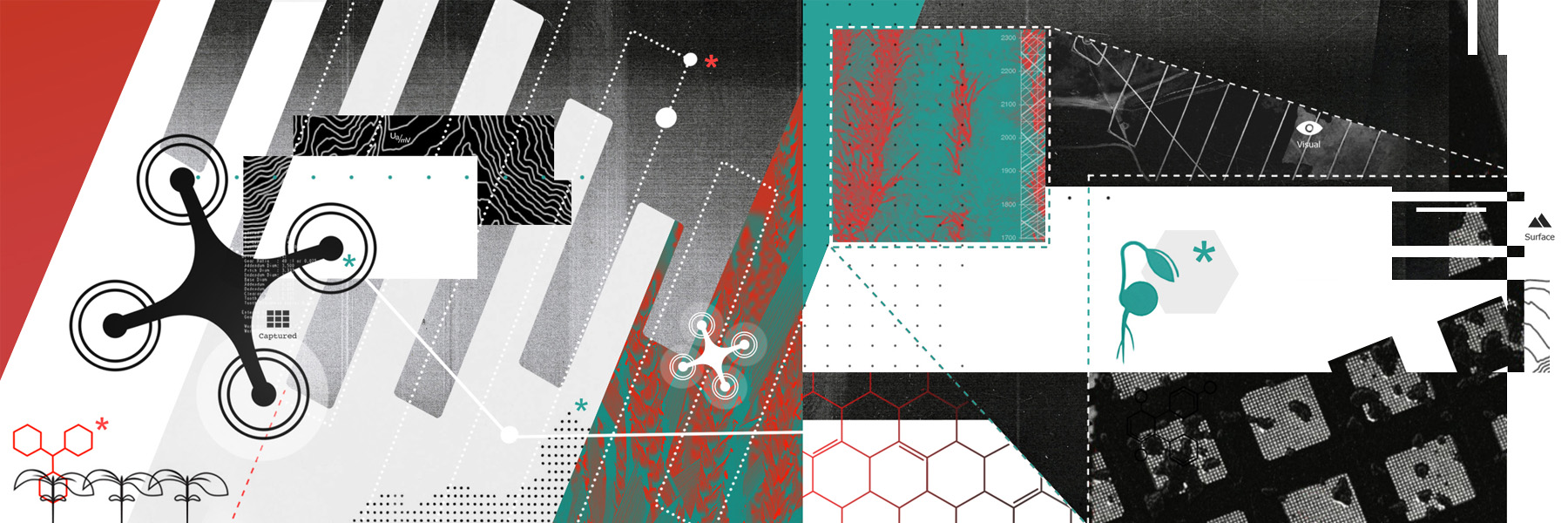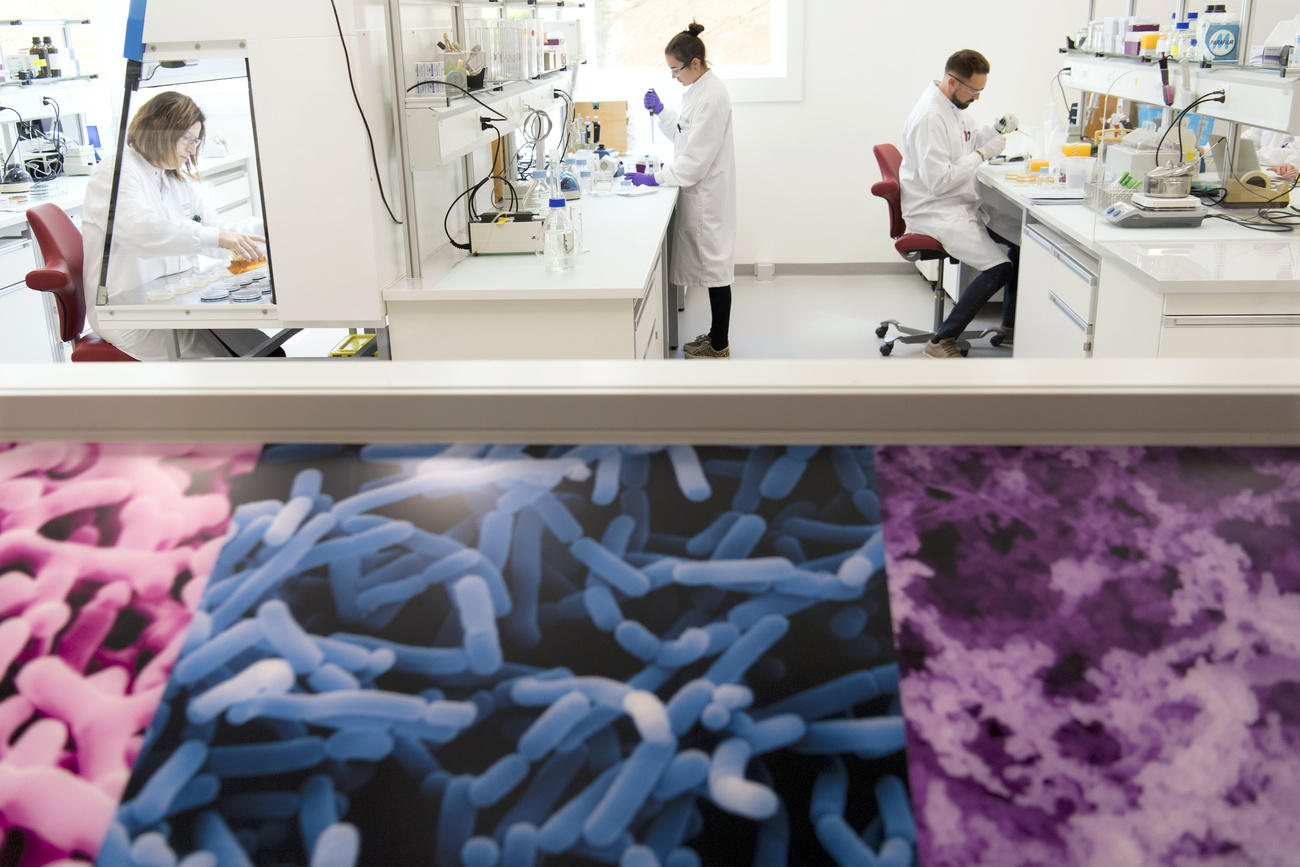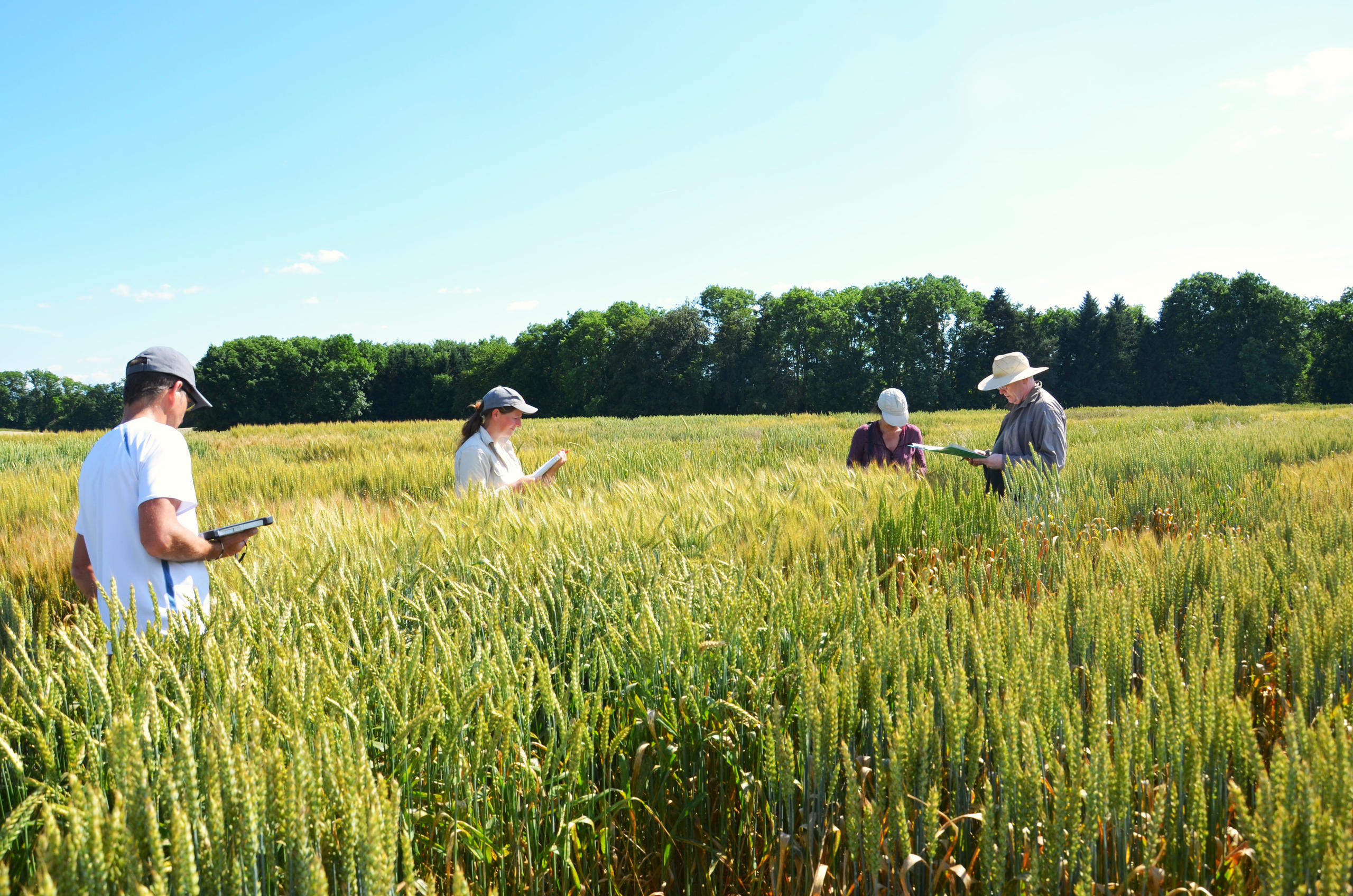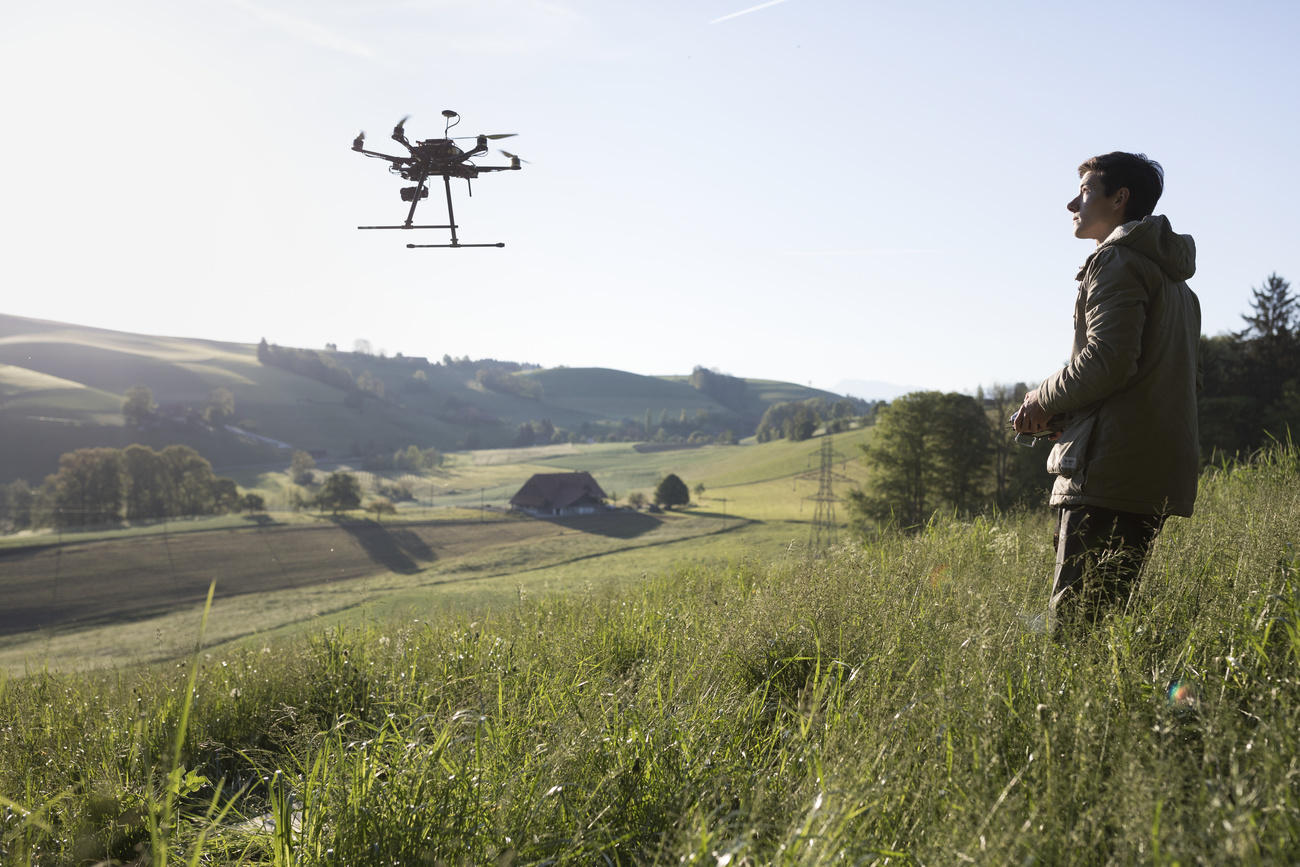
Making the most of smart farming
The challenges faced by agriculture today are immense. The sector is at the frontline of the climate emergency while under pressure to produce more to meet rising global demand. Used equitably, technological innovation offers a way forward.
Integrating information and communication technologies into farm management – smart farming – is already helping farmers to optimise returns while reducing environmental impact. With early and more sophisticated information, they know exactly which patch in a field needs spraying or which cow needs attention.
But data harvesting is only part of a broad wave of innovation that covers the whole agri-food system, from enhanced seed breeding to the development of new foods to market access.
Switzerland is a nation of some 50,000 small farmers, whose production meets just over half of the national demand for food, when imported animal feed is taken into account.
Though Switzerland is a minnow in comparison to agricultural giants like the United States, Brazil, China and Germany, family farmers produce over 80% of the world’s food. Agri-food technologies have to work for them too.
Building a hub
Swiss farming can draw on a wide-range of expertise from the federal institutes of technology, other universities and the agronomy research centres run by the federal body Agroscope.
The beginning of this year saw the launch of a new initiative to bring these players, along with the flourishing private sector, together to boost the country’s role as a research hub. The Swiss Food and Nutrition ValleyExternal link was launched at the World Economic Forum (WEF) annual meeting in Davos.
The aim of the project is to “attract talent, start-ups and investors, while connecting the existing ecosystem, contributing to their visibility, and to develop sustainable solutions for quality food and nutrition”.

More
Swiss set sights on becoming hub for food and nutrition innovation
Planting the seeds
As mentioned, plant breeding, using both long-standing and cutting-edge technology, is one area of innovation where a significant contribution can be made towards more sustainable agriculture.
With the global population predicted to reach or exceed 10 billion by 2050, and a third of agricultural land classified as degraded, the stakes are high.
The Food and Agriculture Organization of the United Nations (FAO) has stated that innovation in general and particularly in agriculture “is the central driving force for achieving a world without hunger or malnutrition”.
Switzerland has a good track record in breeding for disease resistance in the lab and on the ground. Recently, Agroscope and the federal technology institute ETH Zurich have been concentrating on genomic selection, which counts as a conventional breeding technique.
The fruit of all these efforts is that farmers in Switzerland and around the world have access to good-quality seeds which are as resistant as possible to disease, pests and adverse weather conditions.

More
Why we need to know more about wheat, and faster
Organic calculations
And where does organic farming – 15% of Swiss farms – fit in with all this talk of innovation? Certainly, some of the new technologies will help with early intervention against pests and disease for farmers avoiding pesticides and fungicides. But organic farming methods still produce lower yields.
A food waste study carried out by ETH Zurich recorded 2.8 million tonnes of food waste in the Swiss food chain in 2017. That amounts to a shocking 37% of all agricultural production at home and abroad.
One way to make organic farming more viable is to waste less food, as explained in this video:

More
How good is organic food for nature?
Reimagining food
Apart from optimising yields and quality in the field, Swiss researchers are also in the vanguard of developing new foods and production methods in indoor settings.
The need couldn’t be more pressing. While livestock products are responsible for 14.5% of global manmade greenhouse gas emissions, they are a cornerstone of our diet. Meat, milk and eggs provide a third of the protein consumed globally.
There is a growing appetite for guilt-free substitute meats, which are set to capture 10% of the global meat market by the end of this decade. Some products will be lab-grown while others are based on plant proteins.
In a context where consumers are taking great care in deciding what to eat, foods that tick the right health, ethical and environmental boxes have great appeal. One Swiss start-up, Planted AG, has developed a chicken substitute based on pea protein.
In this report on alternative foods and growing methods, we visit Planted and another Zurich start-up which is developing the commercial potential of duckweed protein.

More
How food is being reimagined in Switzerland
Swiss niches
When it comes to smart farming, integrating advanced technologies such as remote sensing, big data, artificial intelligence and robotics into everyday farm management, Swiss companies are finding niches.
Drones have become a popular tool for farmers to survey their lands and generate crop data with the help of agritech companies, especially in large-scale farming countries like Brazil and the United States.
Based in Morges on Lake Geneva, the EPFL spin-off Gamaya specialises in hyperspectral imaging, using special sensors and a camera which has been specifically designed for use in agriculture.
In this final story, we speak to Gamaya about their activities in India and Brazil and profile another Swiss start-up, Vivent in canton Vaud, which produces a sensor which can monitor and interpret plant biosignals.

More
How Swiss technology is changing farming
The digital transformation taking place in agriculture is here to stay, and the benefits are already visible. However, the FAO warns that there are potential drawbacks, including “cybersecurity and data protection, labour replacement and re-education, digital divide and the risk of increasing the concentration in the private sector”.
As long as food security for all is the goal, a global effort will be required to overcome these cross-border problems.

In compliance with the JTI standards
More: SWI swissinfo.ch certified by the Journalism Trust Initiative








